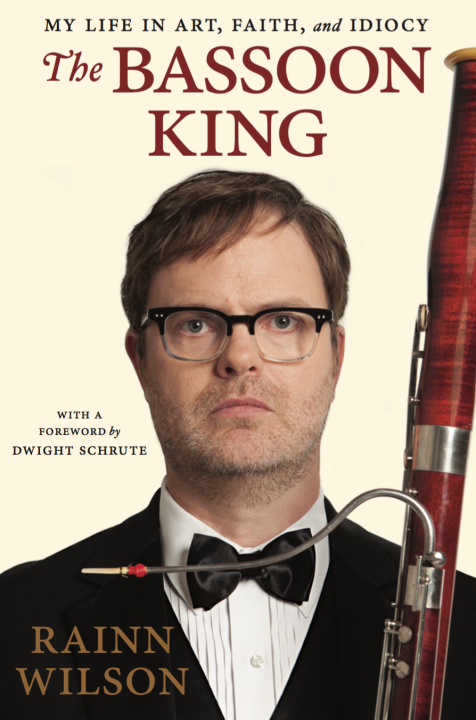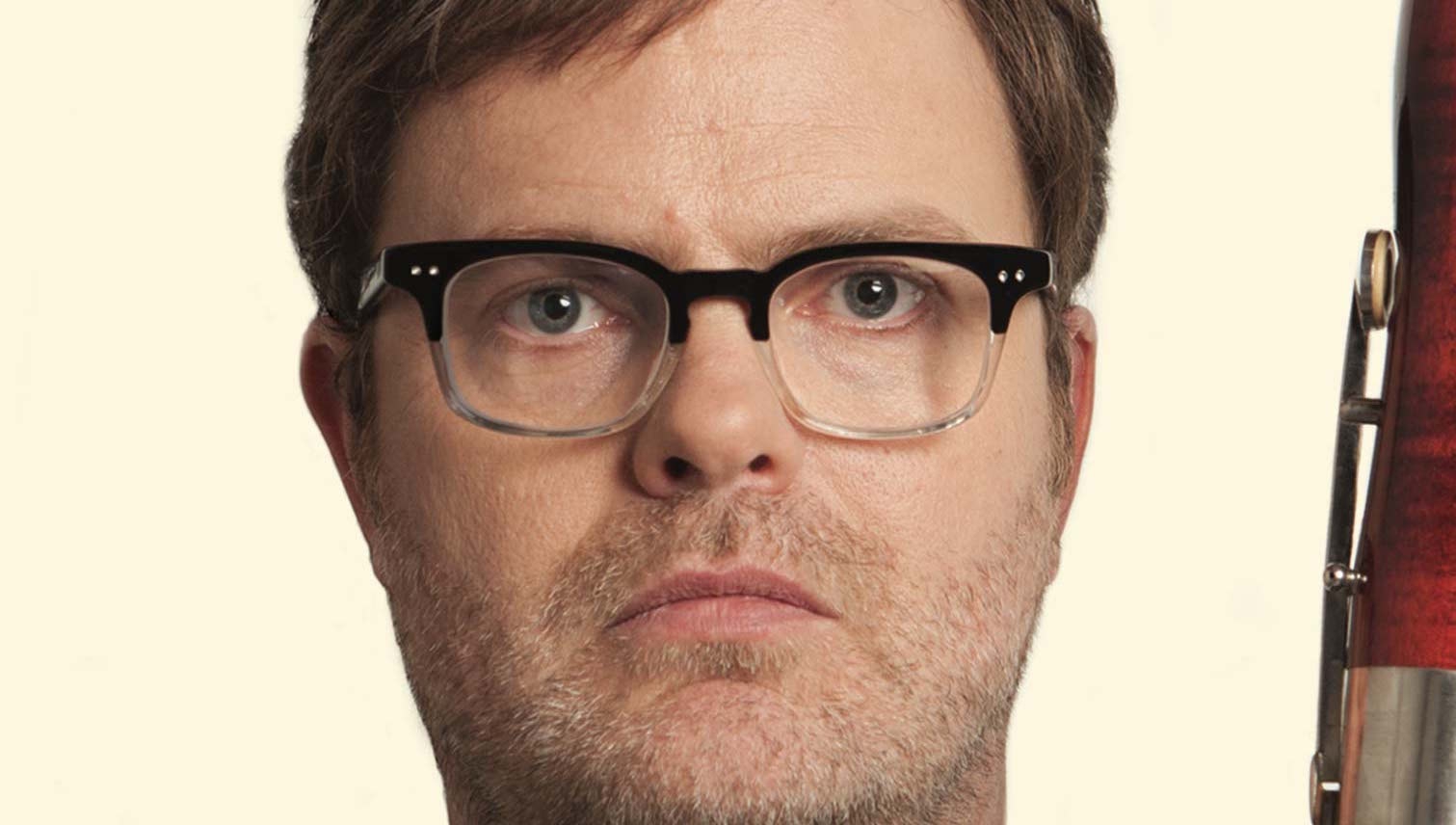The views expressed in our content reflect individual perspectives and do not represent the authoritative views of the Baha'i Faith.
[In his new memoir, The Bassoon King by Rainn Wilson, actor and author Rainn Wilson writes in great detail about his spiritual journey. We at BahaiTeachings wanted to share a series of four excerpts from the book, highlighting some aspects of the Baha’i Faith and Rainn’s unique, comedic take on the religion of his youth—and his adulthood.]

As a Baha’i, I was raised to believe that all the races were one human race and that the color of our skin made us beautiful and distinct like the flowers of one human garden. We were taught as children that men and women were equal and that fighting for justice in the world was the “best beloved” of all things in God’s eyes.
Young Baha’is are taught that the best of human virtues are the qualities of God Himself and that as we radiate kindness, humility, compassion, and honesty we are shining with the light of the Creator that is inside every single one of us. We learned, as fledgling Baha’is, the idea that “work in the spirit of service is the highest form of worship:”
Education holds an important place in the new order of things. The education of each child is compulsory… In addition to this widespread education each child must be taught a profession, art, or trade, so that every member of the community will be enabled to earn his own livelihood. Work done in the spirit of service is the highest form of worship. – Abdu’l-Baha, Divine Philosophy, p. 83.
This is great stuff for a kid. None of that guilt crap to bog one down. We weren’t born sinful in this worldview, you see. We’re noble beings who are dual natured, both divine and animalistic in our essence.
God loves us, no matter what we do. There’s no hell either, just in case you were wondering. (Can you imagine the despicable absurdity of a loving God creating us only to torture us FOREVER— which is a super-duper long time, by the way— in a fiery pit because we didn’t recognize the divinity of Jesus or Muhammad? What a cruel, horrible God that would be! I mean, how vindictive can you get?) In the Baha’i view, after we’re done in this physical world and have shed our meat suits, our souls (whatever they are) move on to another plane of existence and our good deeds and qualities are all that we take with us.
People were far more open to ideas of and conversations about spirituality and religion in the early seventies. Spirituality had seeped into the cultural groundwater. Religion no longer necessarily meant “Catholic, Protestant, Jew,” but was a legitimate, alternative pathway that aided in ordering and experiencing the world in a more feeling, intuitive, connective way. Every Tom, Dick, and Dirty Harry was on a mystical journey of some sort or other. People of all stripes became “spiritual seekers” and were having some kind of transcendent, mystical experience everywhere you turned. Everyone was all like “Be here now” and “I’m okay, you’re okay.” Yoga, communes, meditation, and health food were culturally accepted spiritual paths. The Beatles went to India to meditate with the maharishi. Cat Stevens became a Muslim. Shirley MacLaine explored past lives. Steve Jobs did Buddhist retreats long before he did corporate ones. Both “new age” spirituality and environmentalism came into being in that incense-soaked “age of Aquarius.”
Our personal heroes were Seals and Crofts, the folky, long- haired, mandolin-rockin’ duo that sang “Summer Breeze” and “Hummingbird” and were quite vocal about their Baha’i Faith.

Later on, as I would found the website and media company SoulPancake, which was inspired by many Baha’i ideas, I realized looking back that our home frequently had long, intense discussions of “Life’s Big Questions,” which SoulPancake was built around. Investigating other folks’ belief systems, faith, and philosophy was a big part of being alive in the seventies. Our bookshelves at home were filled with books on Sikhism, Sufism, Buddhism, Egyptian mythology, and Native American spirituality. We had art books filled with paintings and sculptures from every corner of the world. An informal talk about the Faith was called a “fireside,” and there were always long- haired artists and intellectuals and curious housewives in macramé vests and clogs sitting around our living room, digging into these topics with great abandon.
My dad once told me that people were so open to having these kinds of discussions in those days that you could just go up to somebody on the street and say, “Hey, we’re going to have a spiritual gathering with some music at our house tonight, wanna come by?” And the random person would say nine times out of ten, “Sure, man, sounds totally groovy,” or “I’m in, brother,” or “Whoa! Heavy!” or something like that, and before you knew it there’d be a full house of people that resembled background actors from That ’70s Show. Can you imagine doing that today? Going up to a group of twentysomethings in a Starbucks and saying, “Hey, you guys want to come to a spiritual gathering at my house tonight?” You’d clear out the Starbucks faster than you can say “anthrax chai latte.”
To buy a copy of Rainn’s book visit: http://ow.ly/TLtJS
(This excerpt comes from The Bassoon King, the new memoir by Rainn Wilson, published this week by Dutton, an imprint of Penguin Publishing Group, a division of Penguin Random House LLC. Copyright © 2015. Reprinted by permission.)
You May Also Like
Comments

















then don't go to starbucks lol it's closed now but I went to "kharma café" and the name hahahaha easy pickins :)